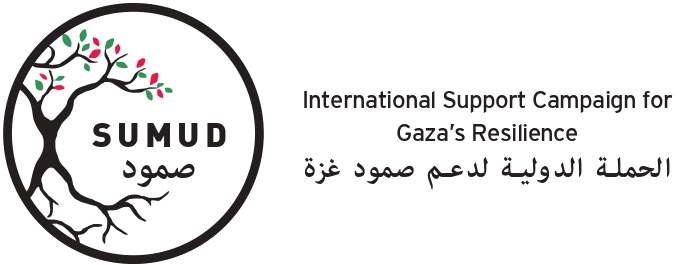International Support Campaign for Gaza’s Resilience
Since the start of the genocidal campaign against the Palestinian people in Gaza in October 2023, more than 38,000 Palestinians have been registered killed, and more than 85,000 have been injured, the majority of whom are women and children. Additionally, approximately 9,000 people are missing, most of whom remain under the rubble, unable to be recovered by rescue crews. This brutal aggression has resulted in the displacement of about 1.9 million people which represents 85% of the population of Gaza. The widespread destruction has left over 70% of homes and service buildings in the Strip, either completely or partially ruined. The scale of this humanitarian crisis underscores the urgent need for support to alleviate the suffering and rebuild what has been destroyed.
The bombing and destruction specifically targeted hospitals, essential service infrastructure, and other critical life support facilities in Gaza. Out of the 34 hospitals that originally existed, only four remain now and they are only partially operational. The Gaza Strip has been cut off from vital supplies for months, with available resources being severely limited and falling woefully short of meeting even a fraction of the needs arising as a result of this genocidal war, with no relief in sight.
United Nations reports highlight the alarming proliferation of famine and disease, the collapse of essential services, and the insufficient shelter capacity to accommodate the overwhelming numbers of displaced people. Meanwhile, the siege and relentless bombing persist. The occupation army has directed a significant portion of its war machine’s force towards dismantling local institutions and networks in Gaza. These entities, historically established through local voluntary efforts and initiatives, have been the focal point addressing the vital needs of Gazans across various sectors, forming an integral part of the people’s history of resilience, self-building, and collective action. This calculated effort by the occupying army has the aim to eradicate any chance of the re-emergence of Palestinian society and its prospects for future survival. This strategy is manifest in what has been termed “voluntary displacement”, representing a systematic attempt to undermine the foundations of Palestinian community resilience and collective strength.
Within this context, it is paramount to steadfastly support local institutions, committees and initiatives actively engaged on the ground. These entities play a crucial role in assisting people, constituting a vital aspect of their humanitarian struggle amidst the ongoing genocide. Moreover, they serve as a foundational element for post-war rebuilding and long-term resilience, as these networks have been deeply woven into the fabric of Palestinian lives, embodying their unwavering commitment to existence, survival, and the struggle for their rights. They consistently demonstrate a remarkable capacity to chart paths to meet people’s needs, establish sustainable approaches, and cultivate robust local networks with independent Palestinian decision-making. Despite facing relentless targeting during years of siege and the ongoing war, these networks persist in their commitment to providing essential services, overcoming the systematic targeting and destruction of their personnel, headquarters and resources. Supporting these local initiatives is not only a means of addressing immediate humanitarian needs but also a means to sustain the enduring strength and self-determination of the Palestinian people.
